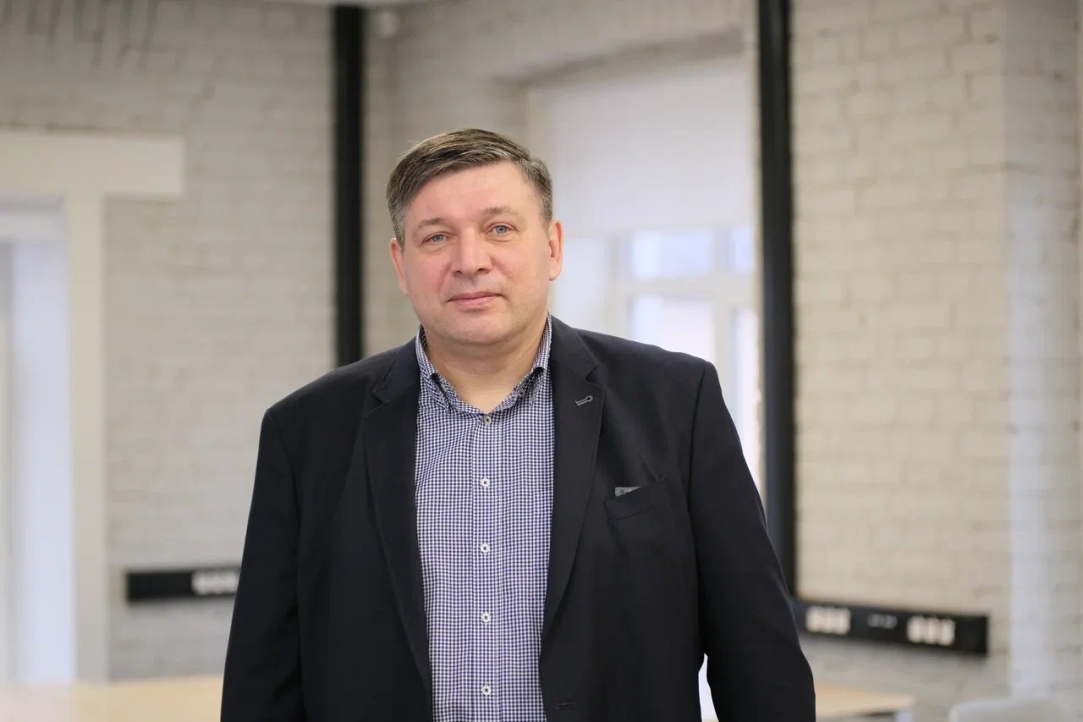
Physicist from HSE University-St Petersburg Ranked Russia’s Number One Scientist in Electronics and Electrical Engineering by Research.com
The academic platform Research.com has published a ranking of the best scientists in the field of electronics and electrical engineering in 2022. In Russia, first place in Electronics and Electrical Engineering went to Alexey Zhukov, Academic Supervisor of the International Laboratory of Quantum Optoelectronics, Doctor of Physical and Mathematical Sciences, Corresponding Member of the Russian Academy of Sciences.

‘The BRICS Strategic Partnership Offers the World Creative, Unifying, Forward-Looking Initiatives’
Today, BRICS has become an influential factor in modern international relations and is perceived as one of the pillars of a more just world order. This association is not based on one party’s dominance, but instead, is built on a sound balance of interests. The role of the association was discussed by the participants of the plenary session ‘BRICS Development Strategy: Equal Opportunities in an Unequal World’at the XXIV Yasin (April) International Academic Conference.
.jpg)
‘The Processes of Urbanisation and Its Impact on People’s Language Practices Are of Major Scientific Interest’
On April 6–8, 2023, HSE University-Moscow hosted the Fifth International Conference Multilingual Urban Space: Policy, Identity, Education. Every year, researchers from around the world attend the conference to share their research and exchange ideas on multilingualism in urban settings.

Alcohol Consumption by Young Russians Drops by Half, Study Says
Sociologist Valeria Kondratenko used data from the Russian Longitudinal Monitoring Survey-HSE (RLMS-HSE) to demonstrate that the percentage of young Russians aged 14 to 22 who consume alcohol decreased by 2.3 times from 62.1% to 26.9% between 2006 and 2019. This paper also explores the correlation between the alcohol consumption habits of children and those of their parents. A paper with the findings of this study has been published in the Bulletin of RLMS–HSE.

Artificial Case: ChatGPT Helps HSE Lawyer Write Article for Academic Journal
Roman Yankovskiy, head of the Centre for Legal Education Transformation at the HSE Faculty of Law, academic supervisor of the Digital Lawyer programme, has written an article in a legal journal using ChatGPT. The experiment was agreed upon with the journal’s editorial board. The author explains why we need such an experience, whether artificial intelligence (AI) is up to the task, and whether we can prohibit its use in scientific work.

Sanctions Create New Opportunities for Russian Companies
Like any crisis, the sanctions of 2022, besides problems, have created new opportunities for Russian companies. This is the conclusion that HSE University’s experts have come to. Their study results are presented in the report ‘Adaptation of Russian Industrial Companies to Sanctions: First Steps and Expectations’, prepared by HSE University for the XXIV Yasin (April) International Academic Conference.

Search Query: How to Study Migration with Google Trends
Experts have calculated that the number of international students in Russia has grown six times over the last decade, and researchers say that many of those who are studying today would like to stay in the country. This, alongside issues such as why Google Trends are worth looking into, were covered at the HSE XXIV Yasin International Academic Conference on Economic and Social Development section on demography and labour markets.

12% of Middle-aged Female Russians Look After Both Children and Parents at the Same Time
Economists at HSE University and the Russian Presidential Academy of National Economy and Public Administration (RANEPA) have assessed the situation of women from the ‘sandwich generation’ — those who have to take care of both their children and elderly parents. The results were mixed: women in this situation often fail to eat regularly, neglect medical check-ups and are more likely to be overweight, but at the same time suffer less frequently from chronic diseases, smoke and drink less and generally show a higher level of life satisfaction. The preprint of the study is published in the Munich Personal RePEc Archive.

Card File: Plurilingual Creativity
Fluency in foreign languages has multiple advantages in terms of cognitive abilities, communication skills, cultural awareness, and career advancement. But can bilingualism and plurilingualism (knowledge of multiple languages and related cultural contexts) contribute to creative thinking and one's ability to generate new ideas? Studies have shown that linguistic, intercultural and creative competencies are interrelated, and their synergy can give rise to plurilingual creativity. The following overview is based on several papers by Anatoly Kharkhurin, Director of the HSE Laboratory for Linguistic, Intercultural and Creative Competencies.

XXIV Yasin (April) Academic Conference Kicks Off at HSE University
HSE University is hosting the XXIV Yasin (April) International Academic Conference on Economic and Social Development in Moscow from April 4–14. The conference has attracted over 3,000 leading researchers, experts, business representatives and government officials from over 30 countries. The leaders of HSE University—Rector Nikita Anisimov, Academic Supervisor Yaroslav Kuzminov, and President Alexander Shokhin—addressed the conference participants.

